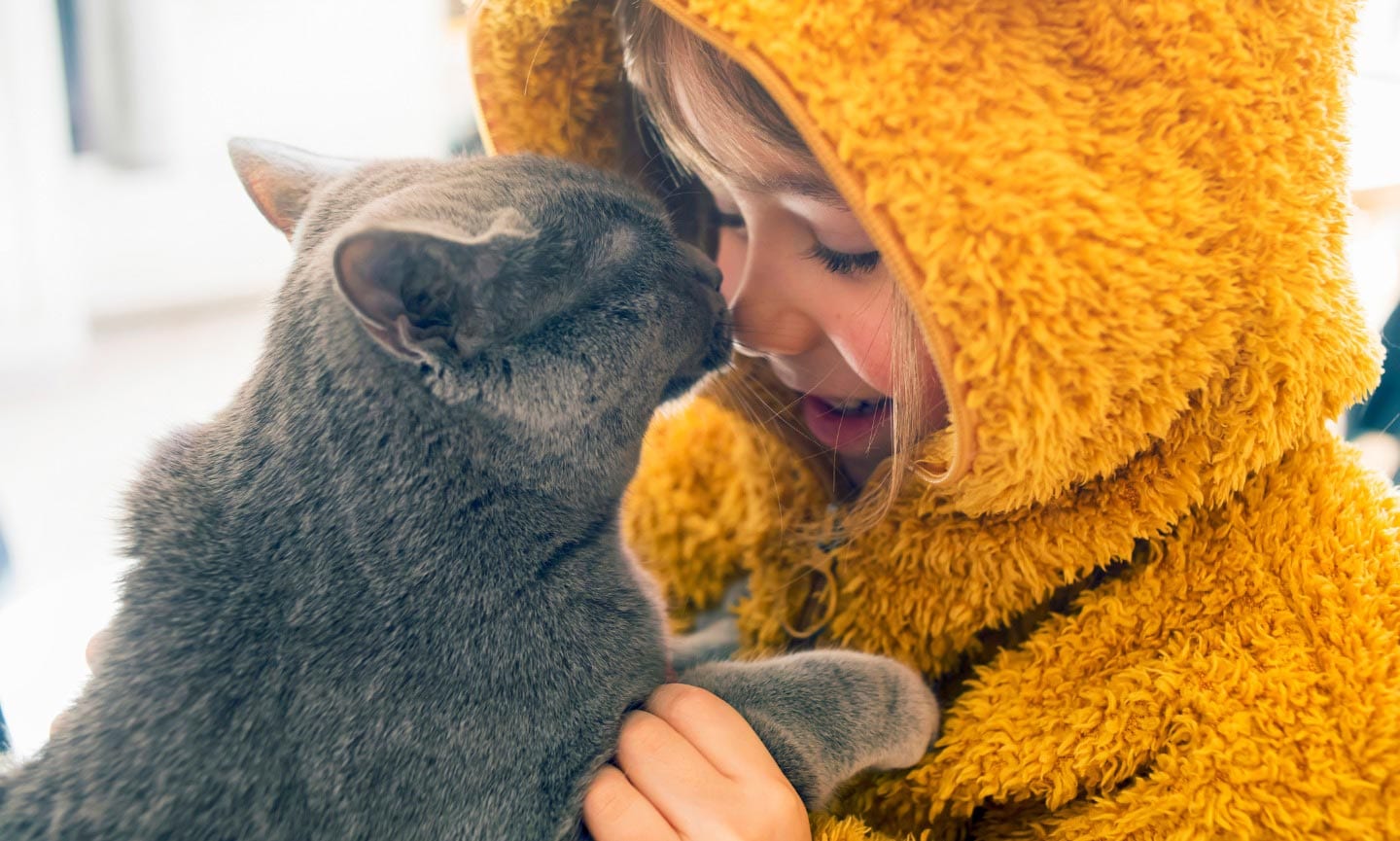Stephen Bardy received his first pet as a gift on Christmas in 1978, and he still remembers it like it was yesterday. He had been asking for a dog for as long as he could remember. So on Christmas morning, when his parents told him not to go into the kitchen and he heard soft scratches coming from the door, he was certain his dream of a new puppy was coming true. At last, his mother told him to close his eyes and placed a box in his lap. Even with his eyes closed, Bardy could feel that there was a living creature inside.
“Then my mother said I could open my eyes,” he recalls. “As I looked down in the box, I was struck by what appeared to be the smallest dog I had ever seen. I blurted, ‘What is this? It’s not a dog.’”
“It’s a guinea pig, dear,” his mom replied.
Christmas is ruined, he thought, as he burst into tears and raced to his bedroom.
Today, over four decades later, Bardy still tells this story. As the executive director of the Pet Alliance of Greater Orlando in Florida, he spends a lot of time during the holiday season reminding people that even with the best of intentions, giving a pet as a gift is often a mistake. “I am not going to say one should never give a pet,” he says, “but I do think there are lots of questions to consider.”
The truth is that whether you buy or adopt an animal yourself or receive one as a gift, adding a pet to your family takes responsibility and commitment. If the recipient is physically, emotionally and financially prepared to care for a pet, it can work out wonderfully—but if it goes wrong, it can have negative effects on both the pet and their parent. So should you give a pet as a gift? Ask yourself these questions first.

1 Does the Person Want a Pet?
“We often think that everyone would love a kitten or a puppy,” Bardy says, “and that by giving one we are showing how much we care for that person. But as my mom would say, don’t give me a gift that makes chores easier or requires me to take care of it.”
In other words, if you are thinking about giving someone a pet, the first thing to ask yourself is: Has that person expressed a strong and sustained interest in caring for one? Sure, they might swoon over adorable animal memes on the internet—who doesn’t?—but do they actually want to bring one home?
The best way to find out, Bardy says, is to ask your intended recipient point blank: Do you see yourself owning a pet? After all, he points out, “I know quite a few people who were pretty specific about their engagement ring. They certainly didn’t leave that up to chance.” Why, then, would you make a decision as important as pet parenthood for someone else?

2 How Active Is the Recipient?
Before you give any gift, you’ll want to make sure it’s a blessing and not a burden to its intended recipient, says etiquette expert Jacqueline Whitmore, founder and director of The Protocol School of Palm Beach in Florida—and that rule extends to pets, too. Different pets come with different responsibilities, so understanding your recipient’s abilities and limitations can help you choose a pet that’s right for them.
For example, your friend may love dogs. But if they’re not big on outdoor exercise, an active breed who requires multiple walks per day won’t be a great match, Whitmore says.
It’s also poor form to expect your gift to change a person’s lifestyle. While adopting a pet can be a life-changing event for some pet parents, it’s far from guaranteed to inspire your couch-surfing friend to suddenly develop an interest in the great outdoors. Remember Whitmore’s rule above: A gift shouldn’t be work. So if you’ve got a laid-back recipient in mind, look for a laid-back breed or species to match.

3 How Old Is the Recipient?
Age and lifestyle often go hand in hand, so thinking about how old your prospective recipient is can help you determine their needs and their abilities when it comes to caring for a pet. An elderly person, for example, may enjoy the companionship of a pet, but might not be physically able to handle a larger dog who requires training or pulls on walks. So if you were planning to give them a Mastiff puppy, Whitmore says, think again.
On the flip side, younger people might have the energy, but may lack the responsibility and commitment that it takes to care for an animal. Many children love animals and would love to bring one home—but is that child or teenager responsible enough to care for the pet? The ASPCA says that if the recipient is younger than 12, the child’s parents should be ready to assume the responsibility of caring for the pet.
It’s also important to consider the recipient’s age in relation to the pet’s lifespan. Pets like cats and dogs can live for 15 or even 20 years. Because responsible pet parenting means caring for a pet until the end of the pet’s life, you should try to avoid a situation in which a pet might outlive their parent.

4 Can the Recipient Afford a Pet?
“Remember, pets are not free—even if someone gives you a kitten,” Bardy says. “The average pet costs about $1,000 a year in food and veterinary care alone.” And that number doesn’t include the cost of grooming, pet sitting or boarding, which may be necessary depending on the species and breed of the pet and the lifestyle of the parent.
Plus, he adds, “If the person is a renter, is there a pet deposit and/or monthly rental surcharge?”
These are important questions, Bardy emphasizes. If a person doesn’t have the means to care for their pet, it’s more likely that they’ll have to relinquish the animal, which can be both stressful to the pet and a real emotional loss for the parent—pretty much the exact opposite of the effect you’d hope to achieve with any gift. “Make sure that beautiful, sweet dog doesn’t seem more like a financial burden to the recipient,” Bardy says.

5 Does the Person Have Space for a Pet?
A pet deposit is just one of many potential issues for renters. Before you give a pet as a gift, you’ll want to make sure your recipient is allowed to keep an animal in their home, Bardy says, as some landlords don’t allow pets. And even if they do, many buildings and apartments have pet restrictions, including weight restrictions. A puppy might fall within the allowed size or weight range now, but may break the rules once they’re fully grown. Think about it: Do you really want your gift to force your loved one to have to move?
Whether they rent or own, consider the size of the recipient’s home, Bardy adds. If you are gifting a dog, is there enough yard space? Is there enough room indoors? Even a small dog or cat needs room to play, as well as a space like a crate or bed that they can call their own. No one likes living in a crowded space—not pets, and certainly not their parents. So if you think your recipient and a pet might spend more time tripping over each other than enjoying each other’s company, think again about giving that pet as a gift.

6Does the Recipient Have Time for a Pet?
Does the person work long hours or travel frequently? Pets require attention, and a person with an active lifestyle or heavy work schedule may not have the time to care for a pet, even though they would love to have it.
“Pets force you out of bed for their morning walk and potty break. They listen to all your woes without nary a judgmental look. You are the most amazing thing to them,” Bardy says. “In exchange for all this amazing love and happiness, they need some of your time every day. They are not a plant that you water once a week.”
Of course, some pets need more attention than others. “Dogs require a little more time and patience, especially as a puppy. Kittens are also very active,” Bardy says. Other species, like fish or small pets, can be more low-maintenance, meaning they may be a better fit for someone whose schedule is already packed full.
How to Give a Pet as a Gift
After careful consideration, you’ve determined that giving a pet is a good idea. Now, how exactly do you go about doing it?
You may feel tempted to wrap your pet up in a bow and hand them over like any other gift. But that’s often a bad tactic, Bardy says. “While it may be fun for the giver, it is often a terrifying experience for the animal,” he explains. “All the loud noises can scare a pup or kitten.”
Here’s what he suggests instead: Tell the recipient that you would like to get them a pet—and that you’d like to begin the search for their perfect companion together. “There is so much excitement when adopting a pet. Let them be part of that process,” Bardy says. “Plus, you get the gift of spending time together, deepening your personal connection.”
Don’t worry—this approach doesn’t mean you’ll have nothing for your recipient to unwrap. There are lots of creative ways to tell a loved one you’d like to give them a pet. You could buy a stuffed animal version of the animal and present that with a card explaining your plans. Or you can create a pet care package full of supplies your loved one will need when they’ve found their perfect match.
“We suggest asking the shelter or rescue organization if they offer the option of a gift certificate,” says Jennifer Joy Moreland, intake manager, adoption counselor and foster parent at Second City Canine Rescue in Palatine, Illinois. “Alternatively, I would suggest creating a gift certificate indicating your intention to cover the adoption fee from a shelter or rescue organization. With a gift certificate, the recipient can have full say over which pet they adopt.”
If you do decide to choose a pet for your recipient in advance, the ASPCA recommends seeking out a reliable place like an animal shelter, rescue organization or responsible breeder. And never place a pet into a sealed box for gifting, which can lead to suffocation.
Alternatives to Giving a Pet
OK, so you’ve determined that your loved one isn’t ready for full-time pet parenting. How else can you celebrate your loved one’s affections toward pets? Consider these alternatives:
- Give a donation to an animal rescue organization in their name. Chewy's Wish Lists let customers send products or gift cards right to their local shelter or rescue.
- See if a local rescue offers puppy-grams, aka a visit with puppies in return for a donation.
- Sponsor a pet for a month or year on behalf of your loved one.
- Look for therapy dog reading programs that your loved one can participate in.
- Seek out pet-themed presents, like these gifts for cat lovers.
“There are so many reasons to have a pet,” Bardy says. “There are not as many reasons to gift a pet.” So consider the questions above, and if you still feel like giving a pet as a gift is the right call, “include the person in the gift,” he adds. “The time you spend together looking for that amazing pet will also create a deeper bond between you both. And what a gift that would be.”
Read More About Bringing Home a New Pet
Share:














